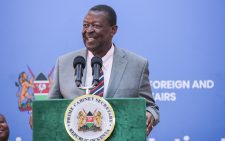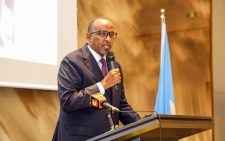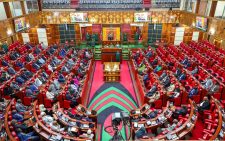Analysing Kenya’s foreign policy towards Somaliland

As a foreign policy student, I read the story “Somaliland inaugurates liaison office as Nairobi ducks diplomatic storm” with interest.
Indeed, the situation surrounding Somaliland’s attempt to establish a full diplomatic office in Nairobi is a complex issue, deeply intertwined with Kenya’s and Somalia’s respective foreign policies and the intricate relationship between the Somali Federal Government (SFG) and the self-declared independent region of Somaliland.
From a Foreign Policy perspective, several key dynamics are at play:
First, Kenya’s foreign policy in the Horn of Africa balances carefully between regional stability and international consensus.
Nairobi explicitly recognises Somalia’s Federal Government (SFG) as the legitimate governing authority, aligning with the African Union’s stance on sovereignty and territorial integrity.
This was reiterated by the Ministry of Foreign and Diaspora Affairs while distancing itself from the Somaliland move.
On the other hand, Kenya maintains pragmatic, unofficial relations with Somaliland, driven by mutual security interests, economic ties—including significant trade in khat (miraa)—and strategic hedging which is particularly relevant given the historically fluid diplomatic relations between Kenya and the SFG, especially in light of the maritime border dispute.
The recent move by Kenya to seemingly block the elevation of Somaliland’s liaison office to a full diplomatic mission, despite Somaliland President Muse Bihi Abdi’s visit to Nairobi for this purpose, underscores this balancing act.
While Kenya allows Somaliland to operate a liaison office for commercial and consular purposes, granting it full diplomatic status would be a de facto recognition of Somaliland’s sovereignty, a step Kenya is unwilling to take due to its potential repercussions – risking alienating Mogadishu, contradicting the AU and IGAD stance on Somalia’s unity, and setting a potentially destabilizing precedent for other secessionist movements in Africa.
Despite Kenya’s official non-recognition stance and insistence on coordination with Mogadishu, Somaliland’s inauguration of its Nairobi mission illustrates strategic ambiguity, long associated with Nairobi’s foreign policy stance.
The Somali Federal Government’s foreign policy firmly emphasizes maintaining Somalia’s territorial integrity, strongly opposing any international recognition or formal diplomatic engagement with Somaliland as it actively lobbies global partners against such moves, promotes negotiations aiming for Somaliland’s reintegration under Mogadishu’s terms, and insists that all foreign relations involving Somali territories be coordinated solely through the central government, a stance exemplified by Mogadishu’s forceful diplomatic reactions, including ambassadorial recalls and condemnation of Ethiopia’s recent engagement with Somaliland.
On the other hand, Somaliland’s foreign policy prioritizes international recognition as a sovereign state by highlighting its stability and democratic governance compared to Somalia’s instability, cultivating informal and semi-formal diplomatic and trade relationships globally, emphasizing its strategic Gulf of Aden location, and actively lobbying the AU and the international community for reevaluation of its historical union with Somalia; recent moves such as upgrading its Nairobi liaison office illustrate its efforts and the significant diplomatic hurdles it still encounters.
Kenya’s recent actions—blocking Somaliland’s establishment of a full diplomatic office in Nairobi but permitting a robust liaison presence and high-level engagements—represent a strategic balancing act designed to reassure Mogadishu and align with international norms on Somali territorial integrity, while pragmatically maintaining beneficial economic and security relations with Somaliland, and cautiously navigating shifting regional dynamics influenced by developments such as the Ethiopia-Somaliland agreement.
In conclusion, Kenya’s approach to Somaliland exemplifies pragmatic realpolitik, balancing cautious engagement with Somaliland against the imperative to uphold diplomatic ties with the Somali Federal Government, adhere to continental norms, and maintain regional stability.
Although the SFG perceives Kenya’s official stance as reaffirming its sovereignty claims, Somaliland retains an influential presence in Nairobi, reflecting the ongoing complexity and unresolved diplomatic tensions that regional actors like Kenya must carefully navigate as geopolitical dynamics continue to evolve.
Dennis Mogare is a Foreign Policy Analyst and PhD candidate (International Studies)















